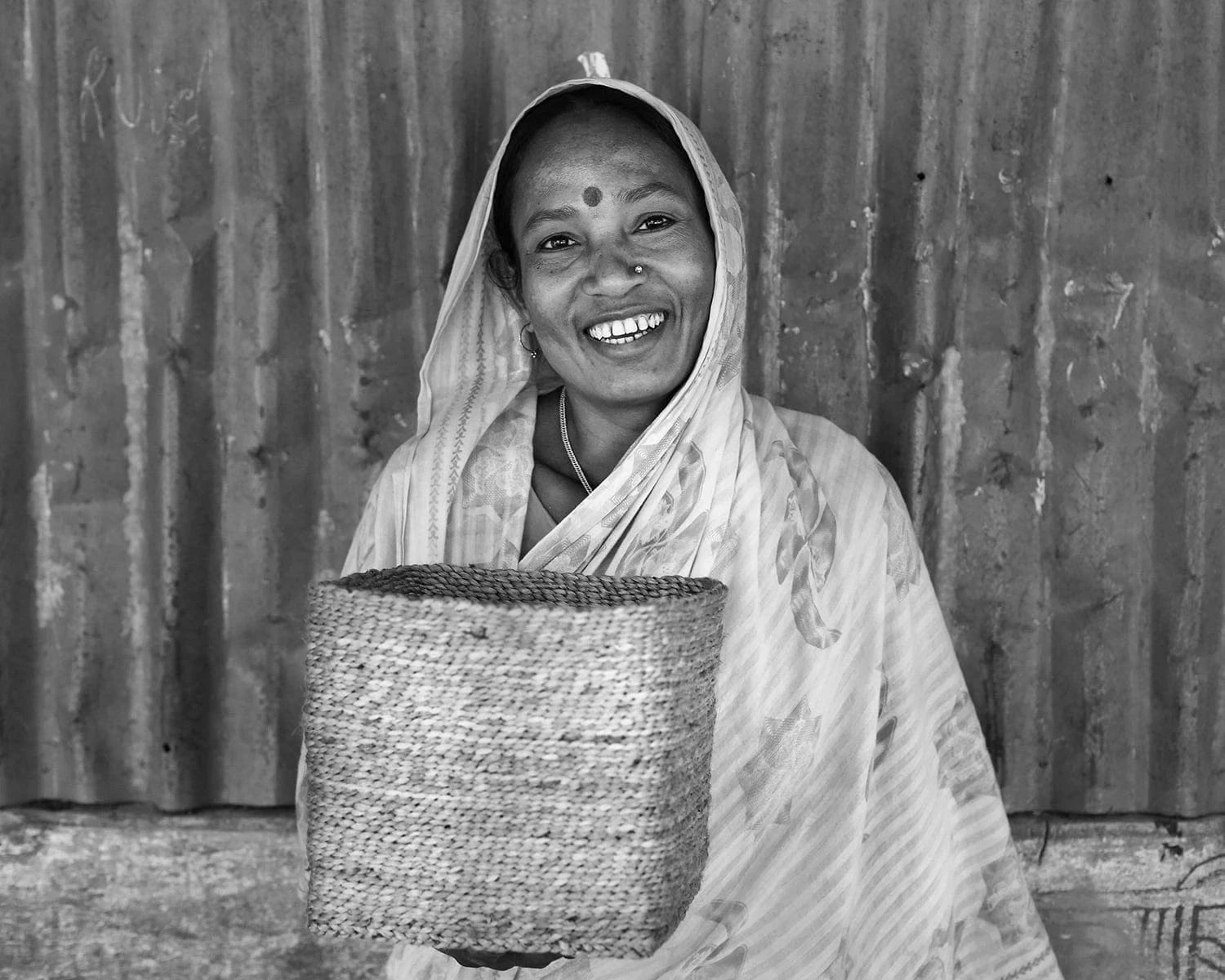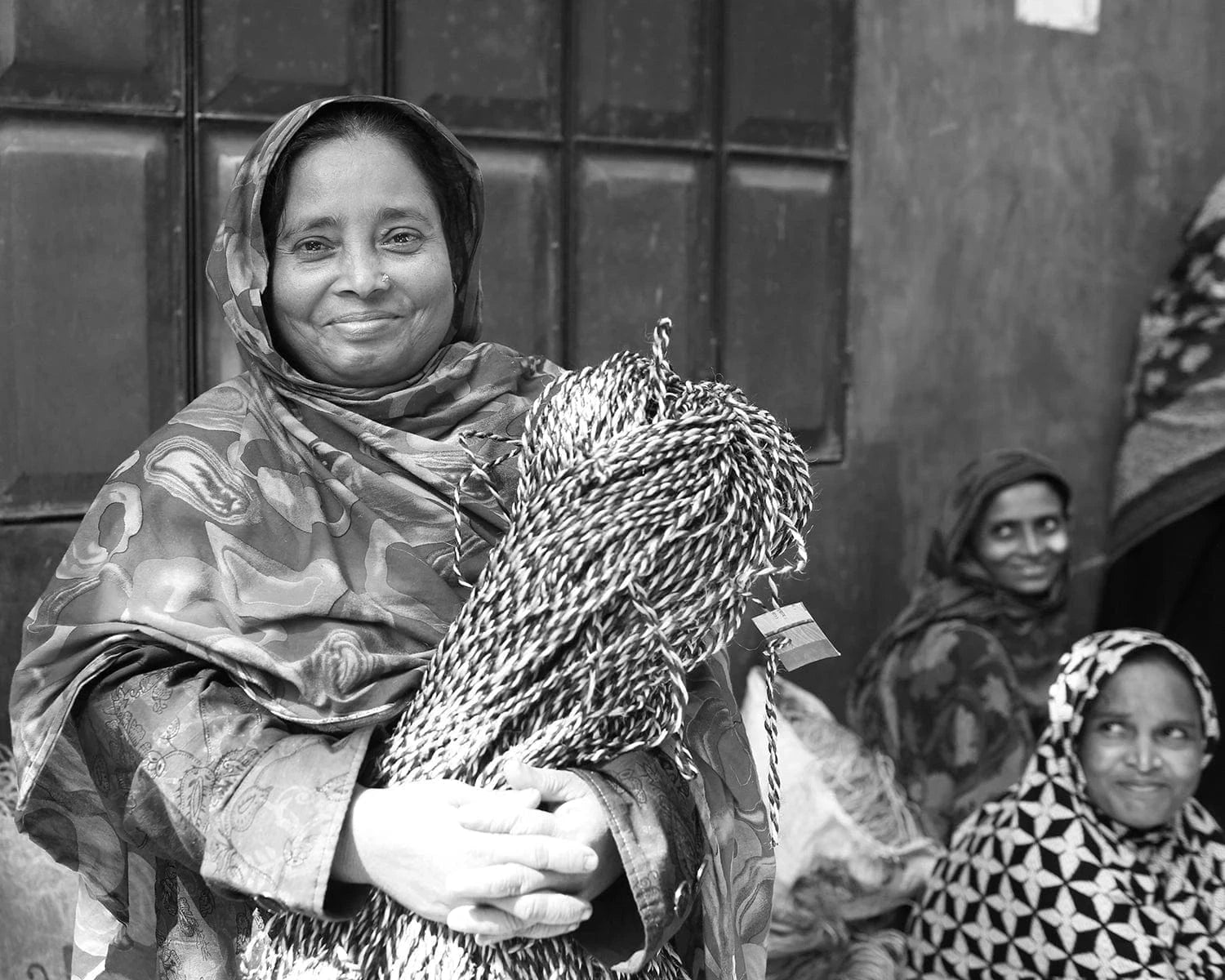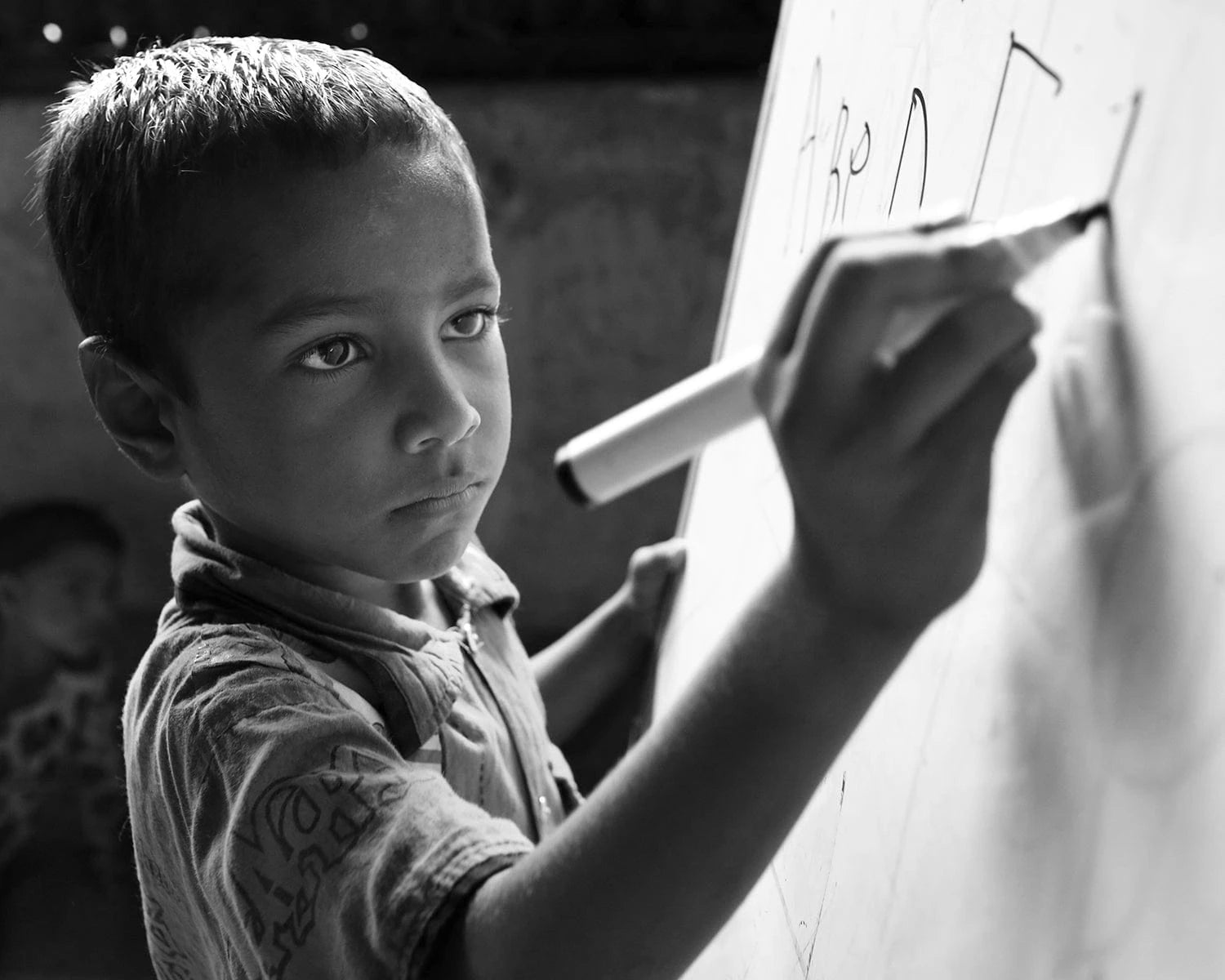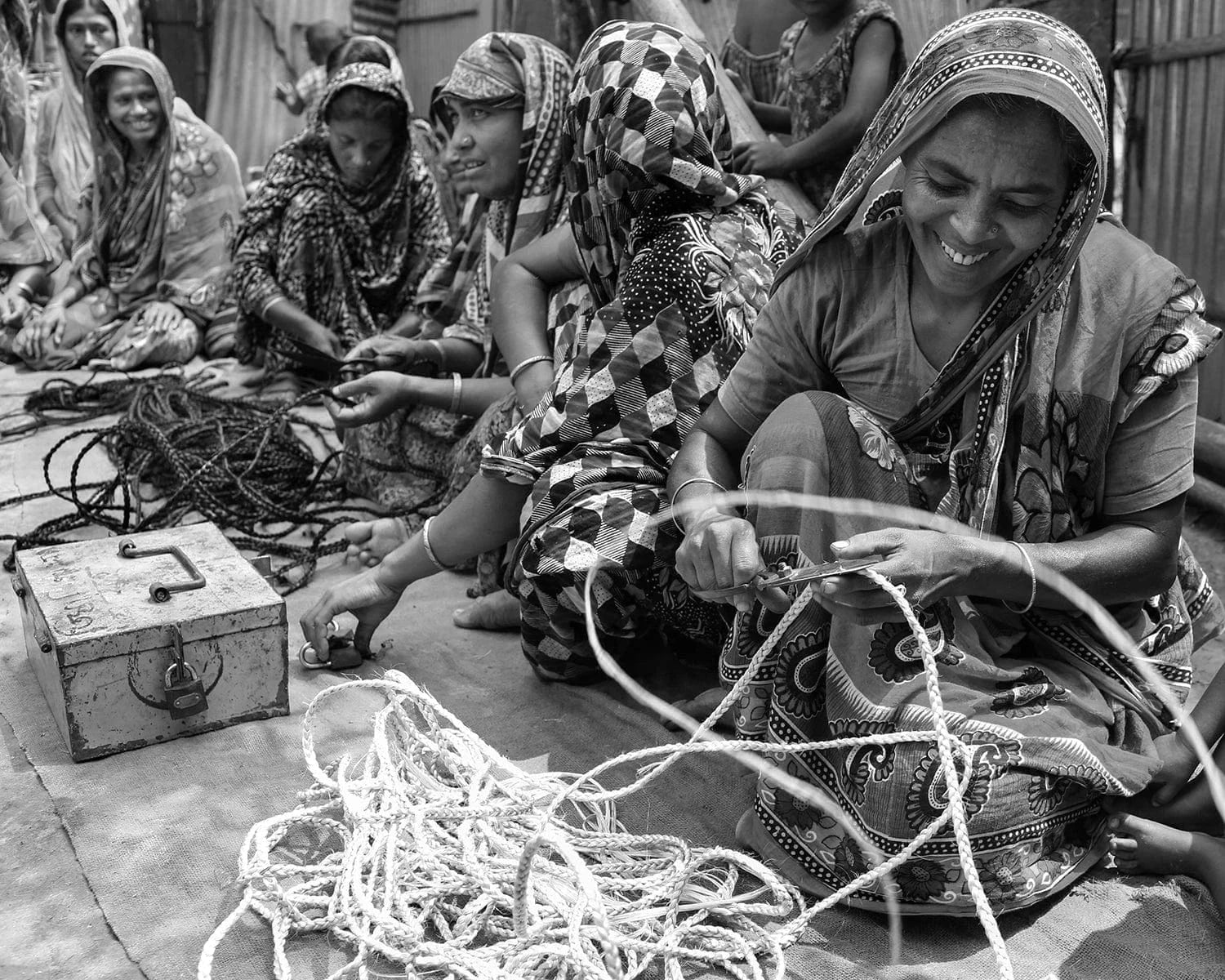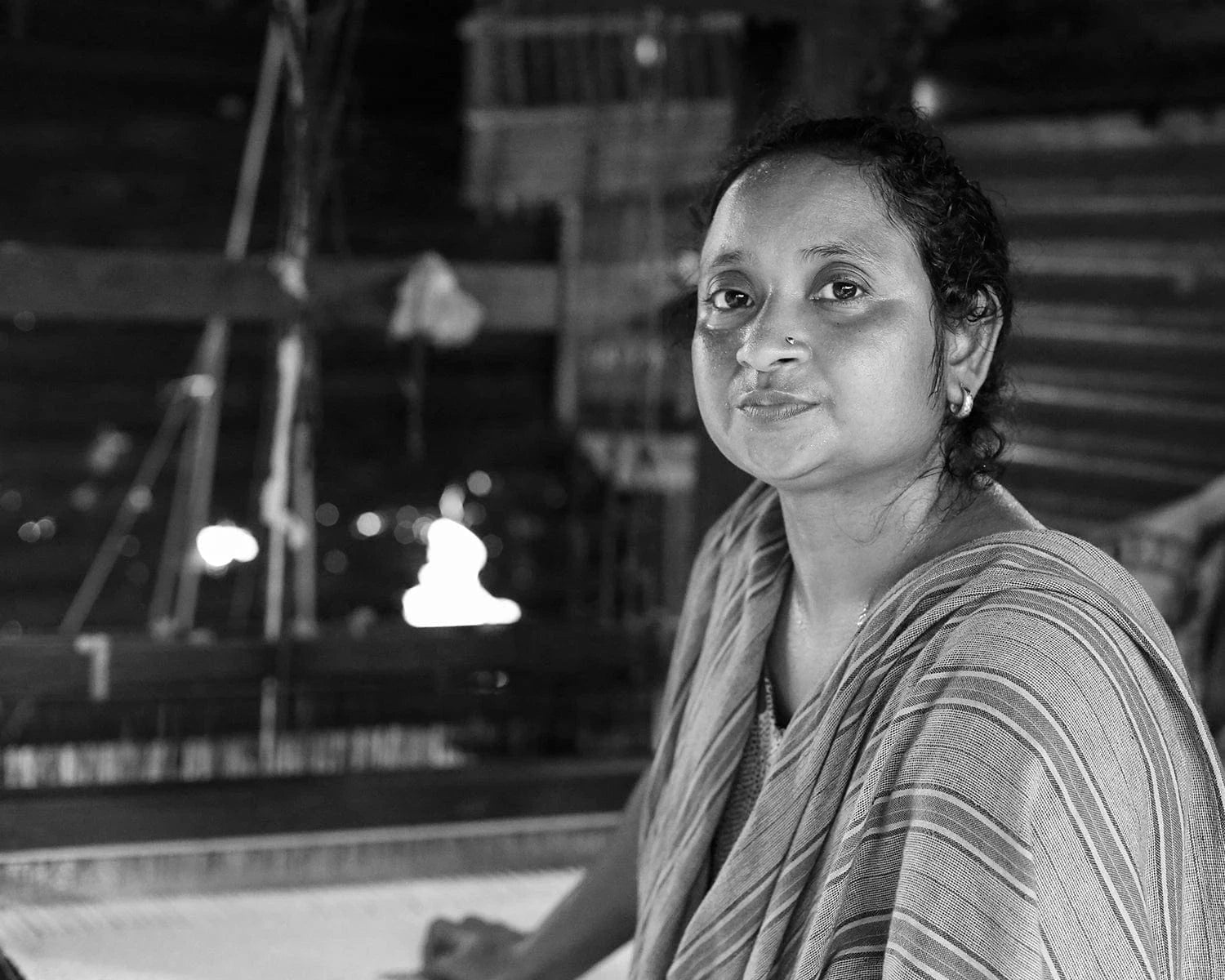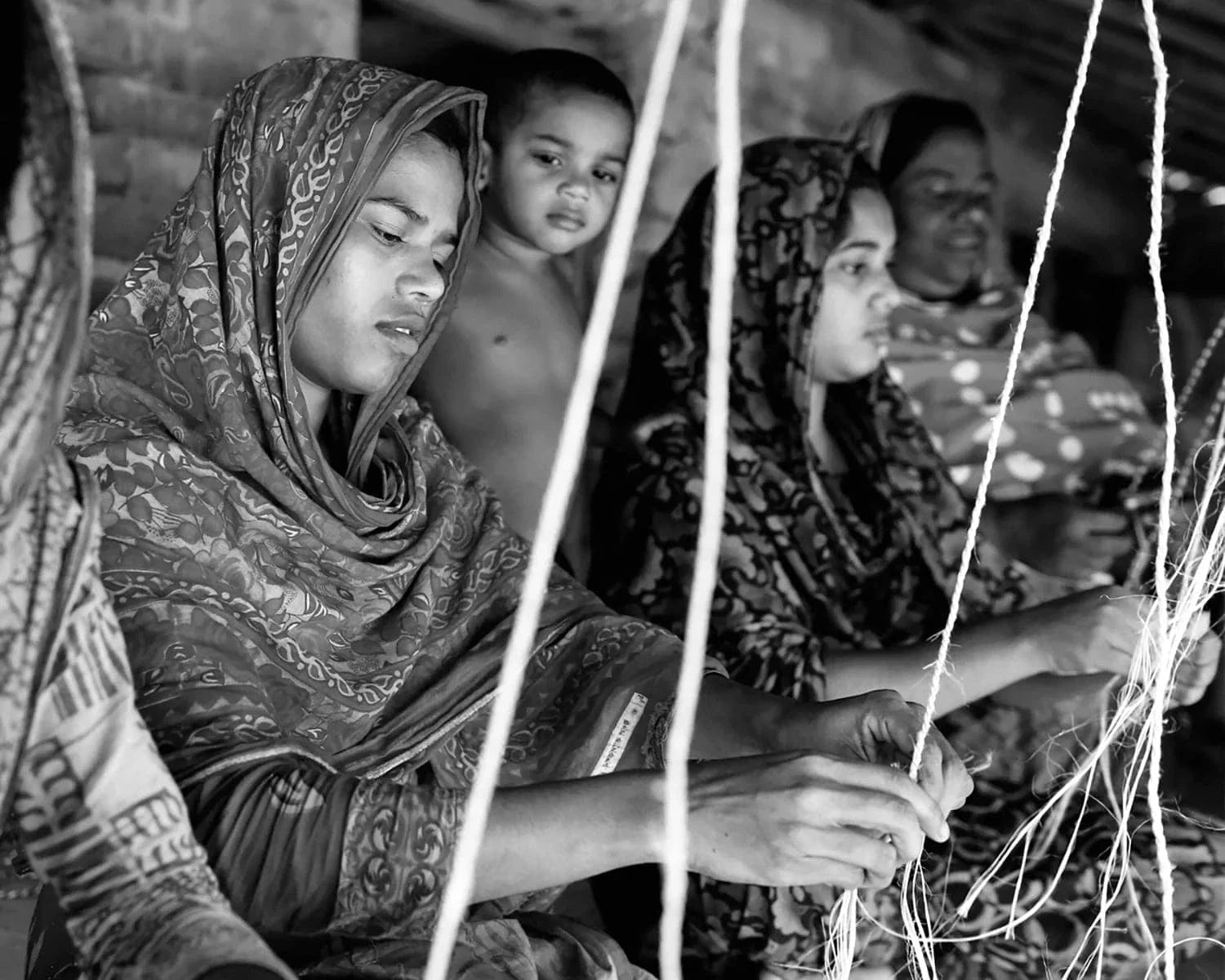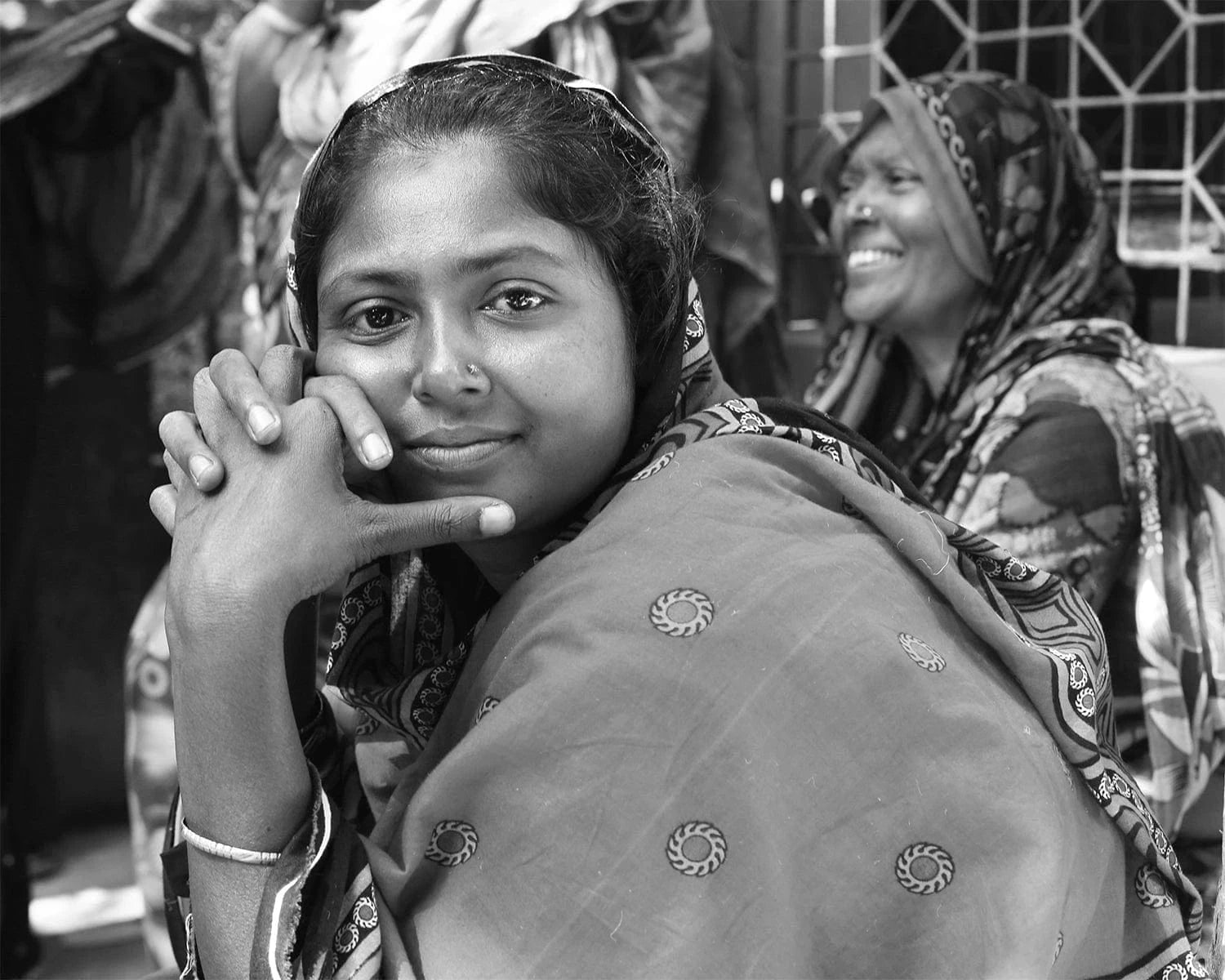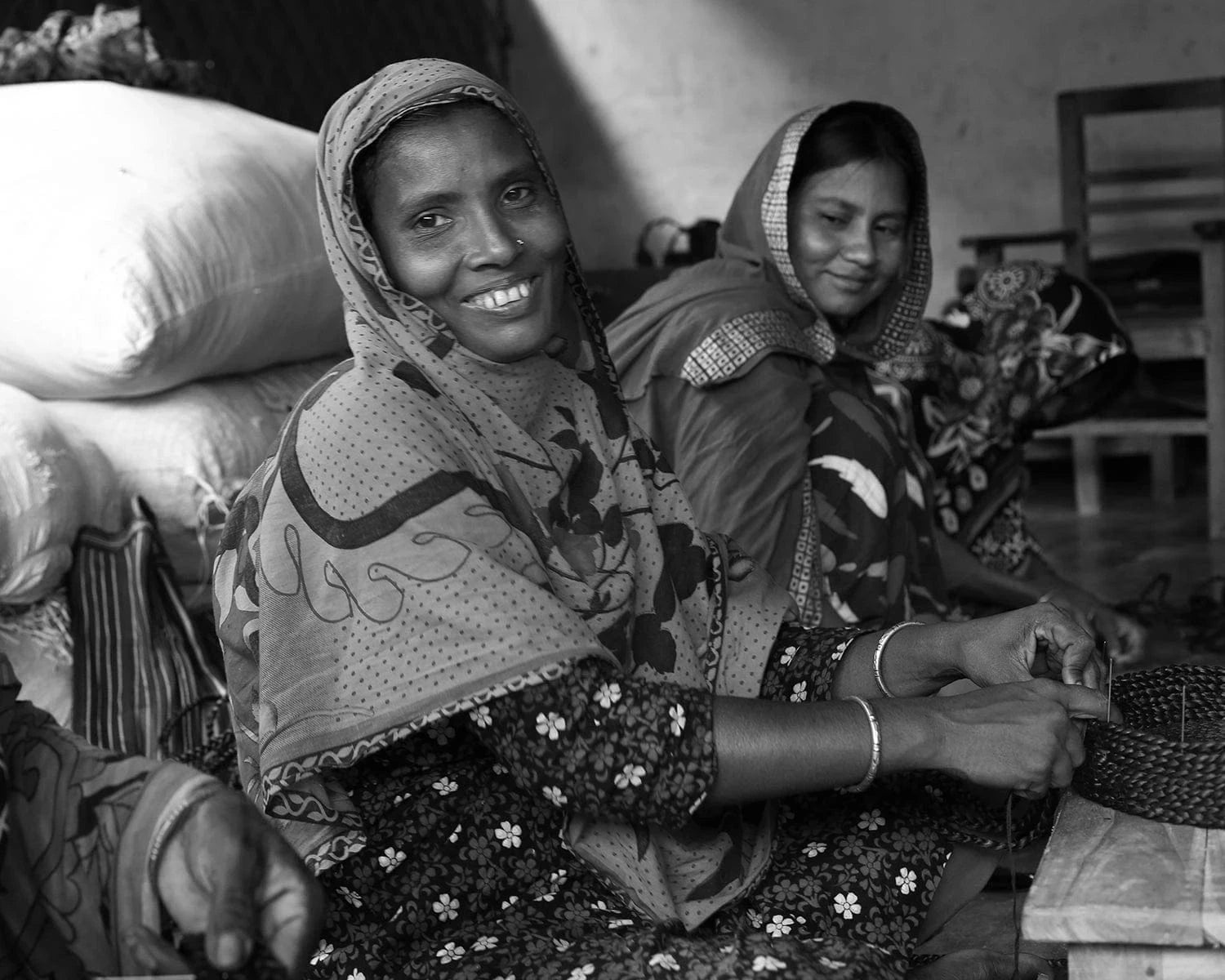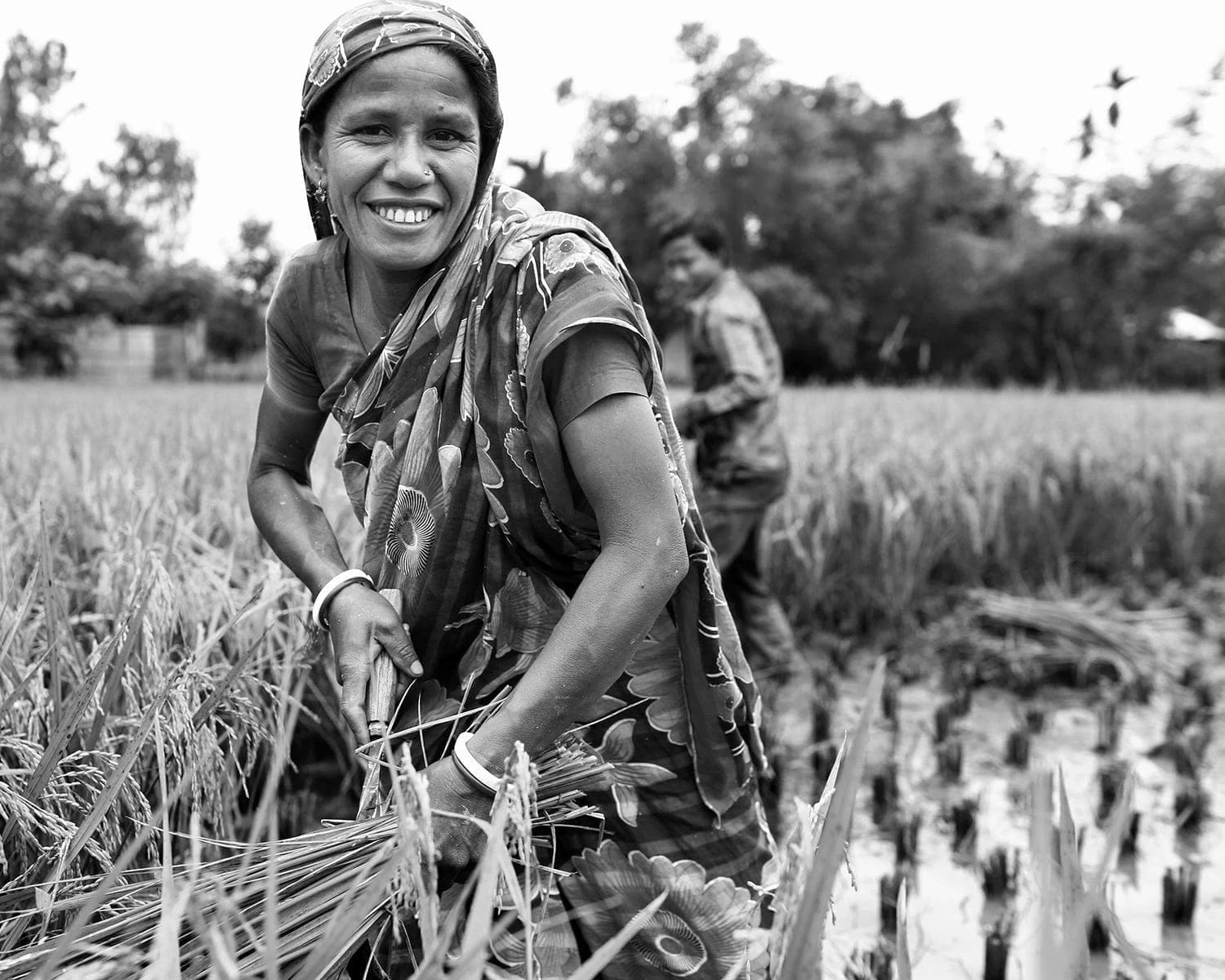Wall Art
Baskets
Rugs
TABLEWARE
Textiles
LIGHTING
DECORATIVE
BAGS
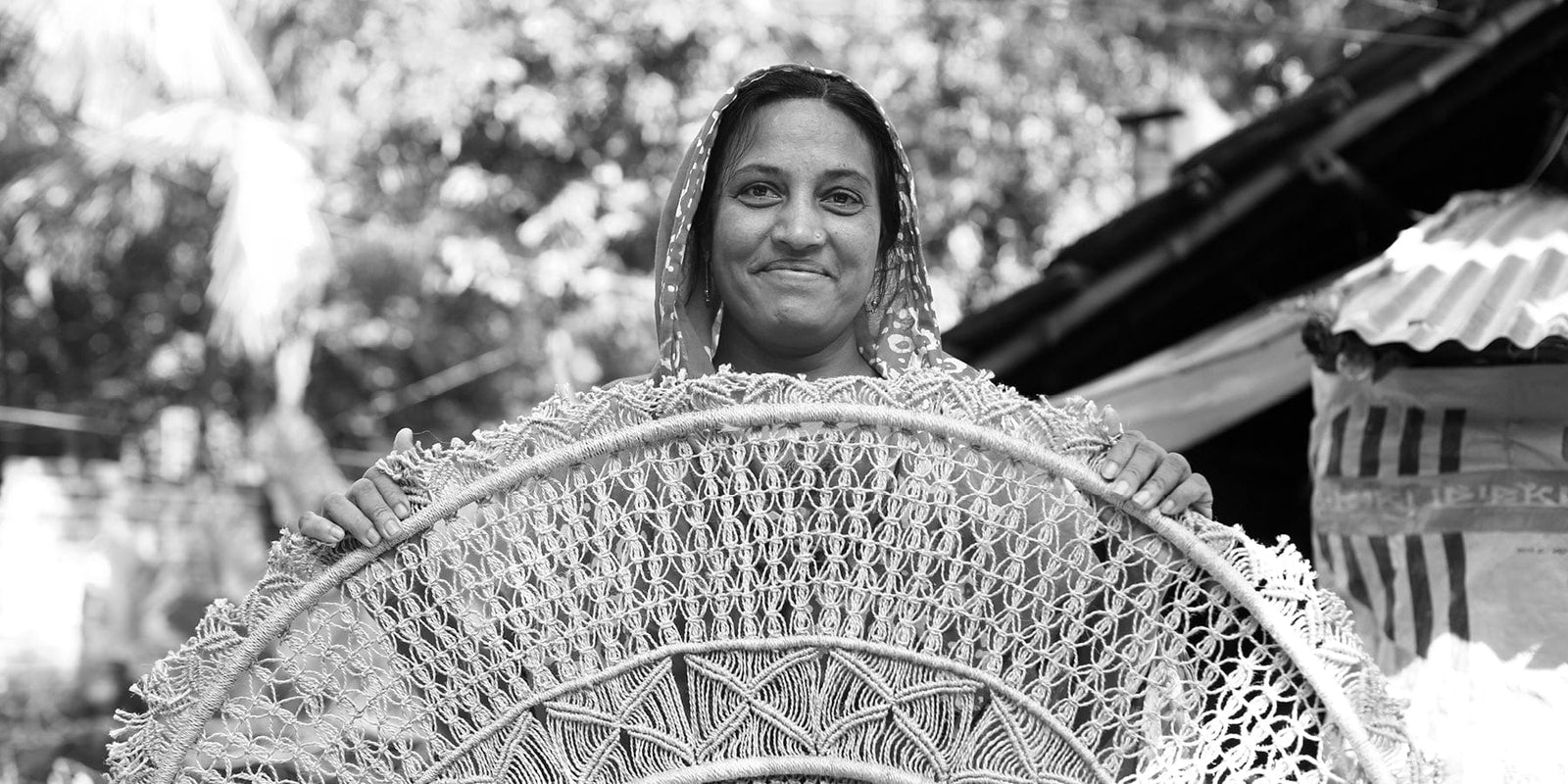
Artisans & Partners
The artisans and NGO partners who make our products are based in remote, rural communities. Amongst the bustle of village life, there's plenty happening behind each woven thread...
Artisans work alongside other women in shared community workspaces. Sometimes they choose to work from home, where they can also care for their family and tend to daily chores. Although highly skilled, they hail from the poorest and most disadvantaged communities in Bangladesh, so access to education, training and health care has been very limited.
By working with The Dharma Door, these women are breaking this cycle by using their traditional weaving and craft skills. Together with our NGO partners, they set the price for each piece based on the time it takes to make; intricacy of design; and the cost of the raw materials.
Being paid fairly is undoubtedly life-changing. However a host of other wonderful benefits also arise through their work: the pride of making something beautiful with their own hands; the camaraderie of learning new skills alongside other women; earning respect from their families and community; the dignity of being able to buy new clothes; and the opportunity to educate themselves and their children.

NGO Partners
Motivated to empower people out of the cycle of discrimination and poverty, these groups also support artisans in other powerful ways. Our NGO Partners have been created to support the most disadvantaged and marginalised people in each region, so they identify the needs within a community and develop strategies to assist them to become self-sufficient. We partner with these groups via their economic and women’s empowerment programs. This provides us with the opportunity to work with such skilled artisans.
Our partners employ design, production and field staff to source, store and distribute the raw materials for each order; train artisans in quality, and how to make our designs; and pay artisans when work is complete. By working with groups who truly do have the best interest of the artisans at heart, we know that our contribution is reaching the right place.
This approach means that we are also proudly part of a much bigger picture, that enables the artisans to benefit from a host of other life-changing support.
Working remotely across cultures isn't always clear cut. That's just one of the reasons why The Dharma Door partners with not-for-profit NGOs that operate within artisan communities.
It's widely understood that when women are economically empowered, they make financial decisions that will benefit not only their families, but entire communities.
Ongoing work and fair prices mean the female artisans who make our products are often the main breadwinners in their families – an incredible achievement in a patriarchal society! This creates respect, and helps to make sure that their voice is heard when it comes to important decisions about how their well-earned money is spent.
Everyone is different, so when our NGO partners first start working in a community, the field staff speak with local people about their skills and interests. Women who are eager to learn or hone their craft skills are trained in quality and techniques for up to two years.
Other people in the community may learn about sustainable agriculture or setting up small businesses and are all taught life skills in health, nutrition and money management. The quality of our products is evidence of such supportive training and our ongoing feedback to the design, field and production teams.
In poor communities in Bangladesh, children may never receive an education, forcing some to work at a young age to contribute to the family income. Girls may also be married off at a young age to reduce the financial burden on their family.
The NGOs that we partner with are passionate about education; many build schools in the communities where our products are crafted where they also teach parents about the importance of education for boys AND girls. This creates a positive cycle of change for future generations.
Many of the groups we work with run a self-managed savings and loan scheme. Each artisan group forms a committee, and they are given a money box with two keys. These are held by a democratically elected leader and co-leader. Every month, the group meets to put 5% of their earnings in the box. During this meeting, the women are given the opportunity to present a loan request.
There can only be one recipient each time and she is chosen according to the greatest need. The scheme helps each woman to have control over her finances and plan for her future.
In some communities where our products are made, age-old craft skills have been passed down through generations. However, without access to buyers and consistent orders, these skills will be lost.
Our NGO partners identify these artisans and their skills and finds buyers who are able to create new opportunities through thoughtful design and market access. The artisans who weave the fabric for our shoppers and totes on handlooms are one such example, as is the revival of natural dyeing.
Migrating for work separates families and creates imbalance within communities. Often, the work that people relocate for turns out to be different to what they have been promised and leads to heavy labour; prostitution; and – in some cases – trafficking.
When there is sustainable work in remote rural communities, the need to move to big cities is reduced. This is just one of the many reasons why we firmly believe in partnering with not-for-profit NGOs who have long-term development goals in place for rural communities. And why paying artisans a fair price for their work is vital!
Life can be challenging for women living in a patriarchal society; they often face opposition to working from the men in their lives. When a women is empowered by earning a consistent living wage, traditional social norms are naturally challenged – and changed for the better.
This occurs slowly, as the benefits become tangible. Now, our artisan's husbands often help to prepare dinner; care for the children and support them fully in their work, even offering to help carry raw materials and completed products. There is also anecdotal evidence of reduced rates of domestic violence within the artisan communities due to less financial stress.
Our NGO partners are focused on full-scale development; training women in craft and business skills is just one piece of their work. They also build safe community spaces for meetings, training and work; to store raw materials; schools for local children; medical and maternity clinics; as well as providing equipment for healthy water and much more.
This holistic approach means our products are crafted by happy women, who are living in communities that are thriving on every level.
Showing communities how to farm in a more sustainable way, and without chemicals, is important for their health; and helps to avoid buying expensive food or raw materials from elsewhere. Sometimes artisans take a break from making our products, so they can contribute to local crop harvests that benefit their whole community.
When it comes to our products, we always have a preference for locally-grown natural fibres and natural dyes. We are passionate about not polluting the waterways where artisans make our beautiful products, so they can enjoy the fruits of their labour in a healthy, sustainable environment.










